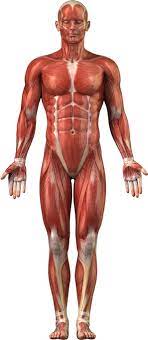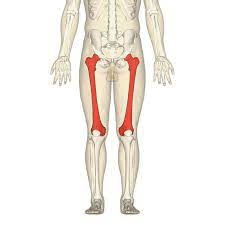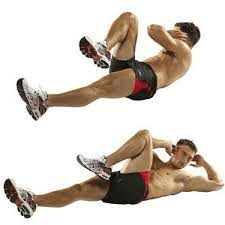Standard position from which all structures are
described; universal starting point

Anatomical position
Flexion (elbow)
How many bones are in the human body?
206
There are over ______ muscles in the human body.
600
A twisting, pull or tear of a muscle or tendon, and is often caused by overuse, or a sudden force.
Strain
Consuming this BEFORE, DURING and AFTER physical activity is necessary to prevent things like muscle cramps, headaches and dehydration.
Water
What does EAP stand for?
Emergency Action Plan
In the FRONT of the body or in FRONT of another structure
Anterior

Extension (knee)

Humerus
Shoulder muscles
Deltoids
The partial or complete tearing or stretching of ligaments (bands of fibrous tissue that hold joints together; connect bone to bone).
Sprain
Name 3 pieces of protective equipment.
Helmets
Padding
Shin guards
Mouth guards
3 signs that an athlete is in cardiac distress (leading to sudden cardiac arrest)
Chest pain with exercise
New onset fatigue or excessive shortness of breath with exercise
Palpitations or the heart racing for no reason
Passing out during exercise
Something that is ABOVE or higher than another structure
Superior

Abduction (hip)

Femur
The largest muscle in the body
Gluteus maximus
How are most acute injuries initially treated? (think of the acronym)
Protect, Rest, Ice, Compression, Elevation
Name a rule in football that is strictly enforced to prevent head injury.
No head-to-head contact/ spearing
What are 5 signs/symptoms of a concussion?
Headache or pressure in the head
Temporary loss of consciousness
Confusion or feeling as if in a fog/ dazed
Amnesia surrounding the traumatic event
Dizziness or "seeing stars"
Ringing in the ears
Nausea
Vomiting
Slurred speech
Delayed response to questions
AWAY or further from the midline of the body
Lateral
Internal or medial rotation
Metacarpals
What muscles are being utilized in these elbow-to-knee crunches?

External obliques
Based on the picture, what type of force caused this player's shoulder injury?
Indirect force
What is "specialization" and how has it contributed to an increase in athletic injuries.
Kids who specialize early are more likely to develop overuse injuries because of continuous and repetitive movements to the same muscle groups, tendons and ligaments.
What type of bleeding is illustrated in each of these pictures and which one would require a call to 911??
Capillary, Venous, Arterial (emergency 911)
In proximity or closer to the trunk or point of origin (used when referring to location on a limb).
Proximal

Ankle inversion
Tarsals
3 functions of skeletal muscle
Movement, posture, stabilization of joints, generate heat
What type of injury is this and where did it occur?
Fracture of the fibula
Warm up is intended to perform what 2 major functions?
Improve the muscle’s dynamics to reduce the risk of injury.
Prepare the athlete for the demand of exercise and enhance performance.
A spinal cord injury that causes paralysis below the neck, including both arms and legs, is called what?
Quadriplegia